How Apple saved consumers from potentially losing $1.5 billion last year
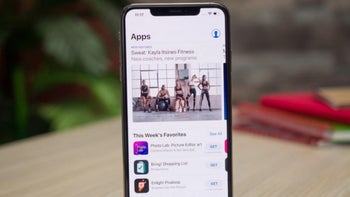
In a blog post Apple has explained why nearly one million apps that requested inclusion in the App Store last year for the first time were turned down by the gang in Cupertino. First of all, in rejecting these apps, Apple says that it saved users from an estimated $1.5 billion in fraudulent charges. "In 2020, nearly 1 million problematic new apps, and an additional nearly 1 million app updates, were rejected or removed for a range of reasons," the company said.
Apple aggressively polices the App Store
Apple released a number of interesting statistics related to the apps that didn't make the cut in 2020. Besides the nearly 1 million that were rejected after submitting their initial application, close to one million app updates also were rejected by Apple. 48,000 apps were removed for containing "hidden or undocumented features," often software tools that Apple uses for its own apps.
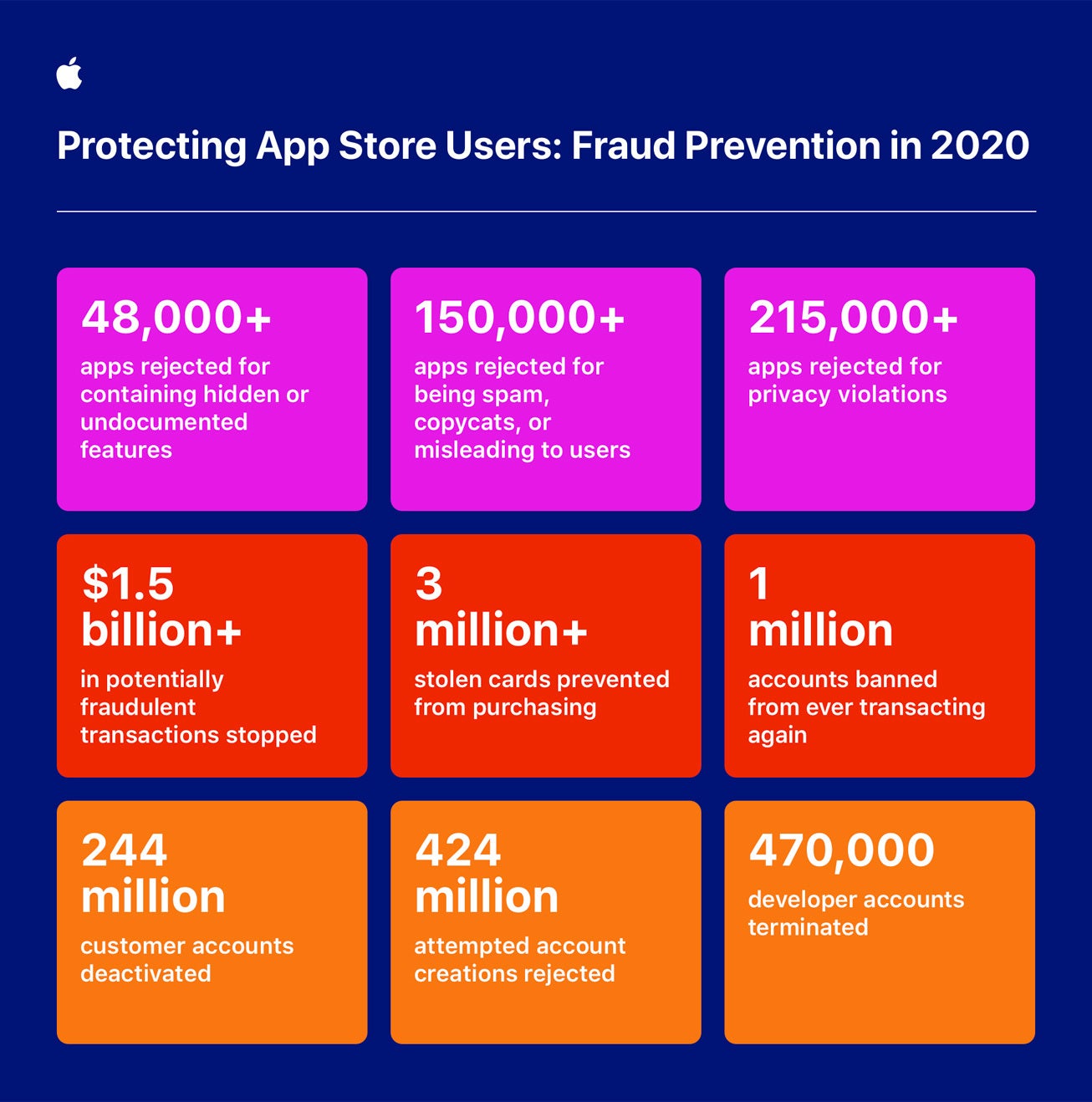
Apple cleans up the App Store
The total number of apps kicked out of the App Store last year for being spam, or for copying another app, came to 150,000. Another 215,000 apps were cut from the App Store because of privacy violations or for gathering too much personal data from users.
Interestingly, Apple removed 95,000 apps from the App Store because they changed formats after Apple's review to become a completely different app such as one with pornographic listings or one involved in gambling. We told you about one such app last month, a child's gaming app called "JungleRunner 2k21" which doubled as a casino app that offered real cash payouts. And a whopping 470,000 apps from Apple's developer program were tossed for fraud.
Apple points out that thanks to its "aggressive monitoring" of apps in the App Store, even the most sophisticated developers using the most modern tools and programming used to hide their true intentions, find that Apple has terminated their malware-laden apps less than one month after creation.
During a slide deck presentation made to the judge during the Epic v. Apple bench trial, Apple said that between 2017-2019 it relied on 500 human reviewers and automatic checks to inspect 5 million apps a year. The rate of rejected apps ranged from 33% to 36% and employees testified at the trial that the number of mistakes it made was small compared to the size of the App Store.
An Apple lawyer said last week that it doesn't want to allow third-party app stores to be allowed to sideload apps on the iPhone, which is something that Google does allow on Android. Apple said that it does not want to be Android. Whichever platform you favor, check out the 10 best real-time strategy games for Android and iOS.
The company said that its goal is always to get new apps in the App Store and 180,000 new developers launched App Stores apps last year. Like we have constantly reminded you, Apple agrees with our suggestion to check out the ratings and reviews for apps that you are interested in. Apple says, "App Store ratings and reviews help many users make decisions about which apps to download."
To check out reviews and ratings for the apps in the App Store, Apple says that it uses a sophisticated system combining machine learning, AI and human reviews by its expert teams. This process allows users to trust what other users say about the apps in the App Store. Since 2020, Apple says that it processed over one billion app ratings and 100 million reviews. All together, 250 ratings and reviews had to be removed because they did not meet Apple's standards.
According to Apple, "It takes significant resources behind the scenes to ensure these bad actors can’t exploit users’ most sensitive information, from location to payment details. While it’s impossible to catch every act of fraud or ill intent before it happens, thanks to Apple’s industry-leading antifraud efforts, security experts agree the App Store is the safest place to find and download apps."






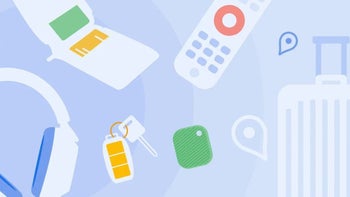
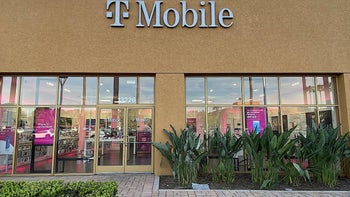
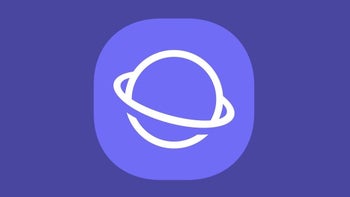
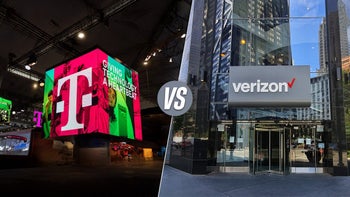
Things that are NOT allowed: